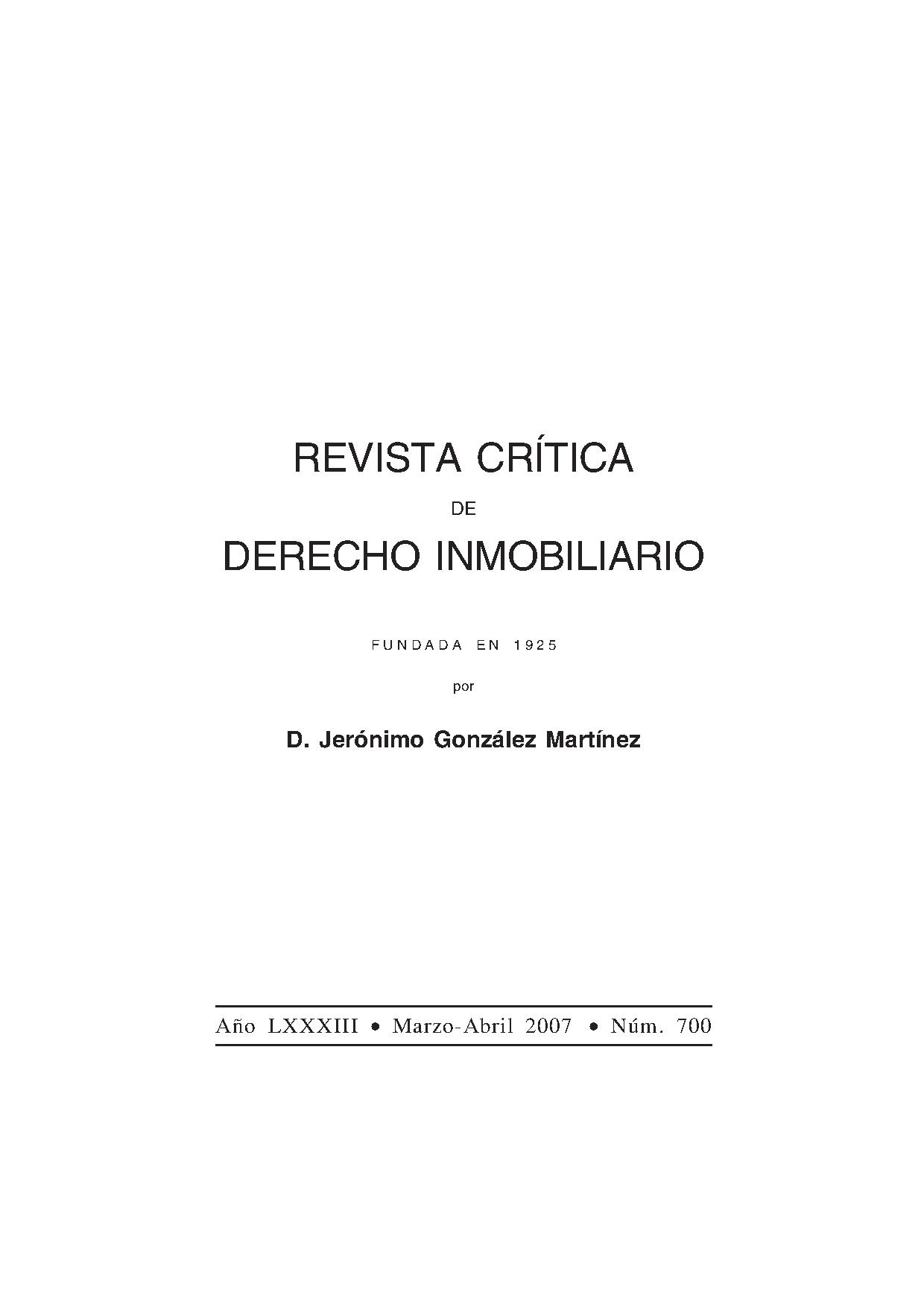REGISTRO DE LA PROPIEDAD Y DESARROLLO DE LOS MERCADOS DE CRÉDITO HIPOTECARIO.
Keywords:
MORTGAGE MARKETAbstract
Registries perform essential functions in a market economy. Reverse engineering reveals those functions. Registries enable real property to be converted into economic assets, and they facilitate contracts, because by reducing information asymmetry they enable the parties to any exchange to overcome the main difficulties in their way (lack of communication and mistrust) and better coordinate their common interests. But not all registration systems are equally efficient and effective at attaining these objectives. Title registries are clearly superior to recording systems. The effect of conclusive title, which is characteristic of title registration systems, is equivalent to the rule for securities whereby, in securities fully verified as incorporating the right and securities attested to by an official for oaths, the scope of the lender's right is circumscribed to what is written in the securities certificates against which he has made his loan. So, entry in a registry may be regarded as a security certificate that facilitates the circulation of property and the eligibility of property as collateral for loans. From the market perspective, entry in a registry is not therefore a mechanism of disclosure, but of right creation, making the right independent of (i.e., abstract from) the vicissitudes that may affect the business at issue in the entry, third-party good faith notwithstanding. It is necessary therefore for the judicial system to look upon registrar pronouncements as good, reliable evidence. This ultimately depends on the reliability of registrar pronouncements, which in turn depends on the guarantees the registration procedure offers, and that is largely determined by the structure of the organization in charge of the registration system. Analysis of the empirical evidence on the relationship between the registration systems of different countries and their mortgage markets confirm this hypothesis. Along these same lines, there is a critical analysis of the formalization policies used in some Latin-American countries.









